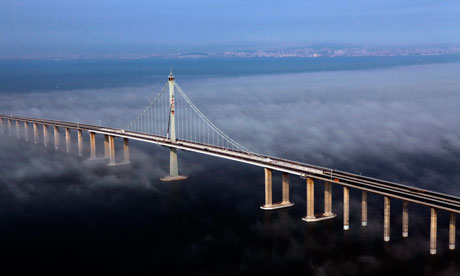Rapidly moving events occurred in Somalia lately. The Transitional Federal Government (TFG) dislodged Al Shabab militia from control of most Mogadishu districts, including the vibrant Bakara market. Unsettling disagreements between
President Sheikh Sharif Sheikh Ahmed and
Speaker Sharif Hassan Sheikh Adan was
solved in Kampala, Uganda. But it’s this agreement which stipulates Prime Minister Mohamed Abdullahi Mohamed aka Farmajo to resign within thirty days that has angered the majority of Somalis and is the subject of this article.
First, Sheikh Sharif nominated Farmajo on October 14, 2010 and the transitional federal parliament approved him on October 31. Two weeks later, the premier appointed a “lean but capable” cabinet whose professional qualification was unmatched in the history of the nation. This first step has won the hearts and minds of the Somali people and has raised new optimism in realizing the elusive hope of a more peaceful Somalia.
Second, Mohamed has set himself a goal to change the way business is done in villa Somalia. On governance, he fought the rampant corruption that characterized the previous administrations including that of Ali Mohamed Gedi and Omar Abdirashid Ali Sharmaarke. He demanded efficient service delivery, and ended bickering within the cabinet.
On security, he instituted a timely payment of salaries for the army protecting the nascent TFG. This has stopped the practice of soldiers deserting areas they liberated or selling their weapons to the rebel groups and helped in the capture of more territories in Mogadishu, Gedo and other regions. He demanded African Union peacekeepers to stop indiscriminate shelling of unarmed civilians’ residential areas. He improved the working relations among various army agencies and therefore revitalized peace building operations.
On international relations, the premier travelled to the United Nations and Arab league countries to ask them to bolster diplomatic relations and support efforts to bring law and order back to Somalia. Additionally, he reached out to the Somali Diaspora through deeds and words, asking them to join his government and work for their country. He demanded U.N agencies to relocate and operate out of Mogadishu just like they do in Baghdad, Iraq and Kabul, Afghanistan, two countries that face similar security challenges.
Third, following the signing of Kampala agreement (KA), Mogadishu residents
took to the streets asking Mohamed not to resign, a protest that has been echoed elsewhere in the country. Mohamed has proved his deep grasp of the Somali problem and has devised tangible solutions within six months, results his recent predecessor couldn’t deliver in a year and a half. In less than 24-hours after the KA news was out, groups have formed, even on social networking sites, to support Mohamed. One such assemblage is the Facebook group,
We Support Mohamed Abdullahi Farmajo -The Somali Prime Minster, that has nearly 5000 members. Other Facebook users have changed their profile pictures to the premier’s portrait to stand up with a leader that has a promise to revive Somalia, a nation that lost millions of people in war and displacement over the past two decades.
Finally, KA is a conspiracy to sustain the current status and very much sound the death knell on the gains Somali cabinet has made over the last six months and any future progress that would probably be achieved. The new government that would be formed after Farmajo’s exit would nominate notorious warlords and incompetent parliament members to cabinet positions, to keep Somalia in a vicious cycle of failure. Somali nationals must reject anarchists and support the prime minster by:
• Joining the ranks of Mogadishu residents and taking to the streets, in Toronto, Minneapolis and London, of their dissatisfaction of the KA to express public outrage
• Demanding PM Farmajo to stay put until he cleans up the mess, gets the job done and puts Somalia back to its feet or until such times that a better person for job is available.
• Asking the two selfish Sharifs to resign and more so the speaker of the parliament
• Withdrawing support from the bloated number of legislature until reforms are made
• Demanding the parliamentarians to show results in promoting peace and stability
• Demanding an immediate end to the current and future executive wrangles
• Asking politicians to inform the Somali people, at home and abroad, about the political situation of the country
• Insisting on transparency and accountability in appropriation of revenues and in service delivery
Farmajo does not need to be a premier. Rather, it’s the job that needs him. The ongoing unprecedented demonstration in Mogadishu streets is an expression of public satisfaction with results Somali people need to see in their leaders. His removal from office is a likely retaliation for his efforts to fight public corruption and incompetence. The Somali people must understand that it takes qualified individuals not beholden to clan interests to bring change to Somalia. However, the current crop of legislatures doesn’t want merit and would fight for
mediocrity unless the Somalis everywhere check on their excesses.
Author's contact: ahmednajaah@hotmail.com







